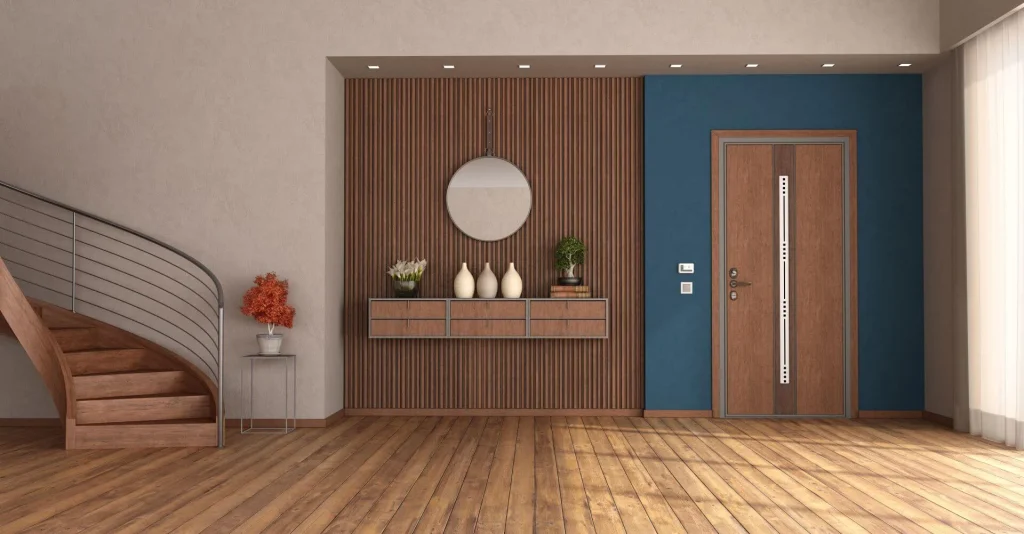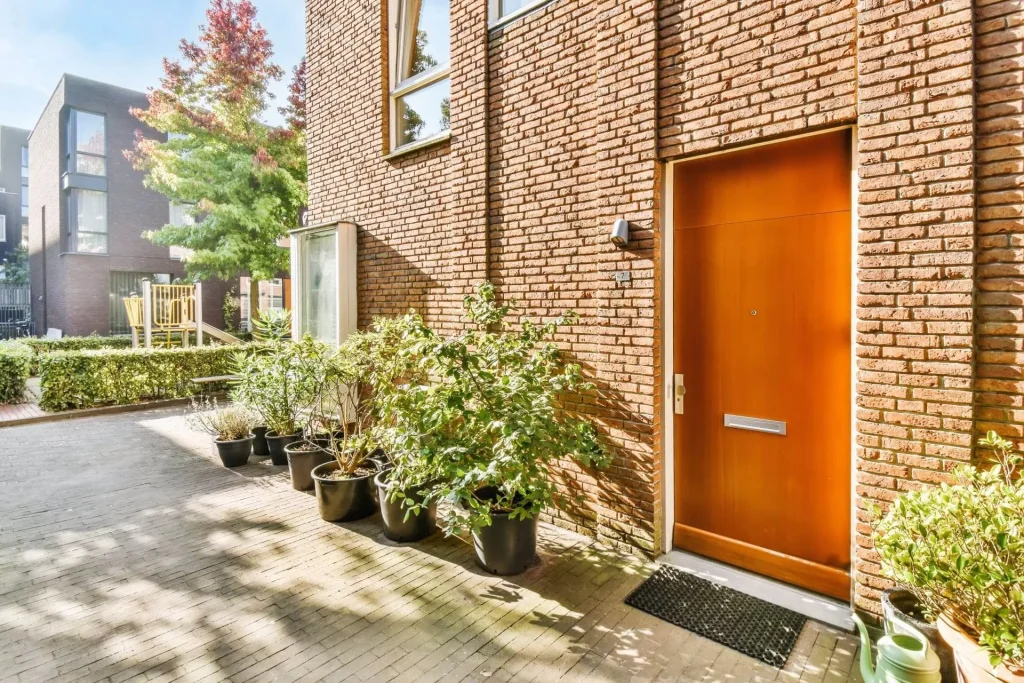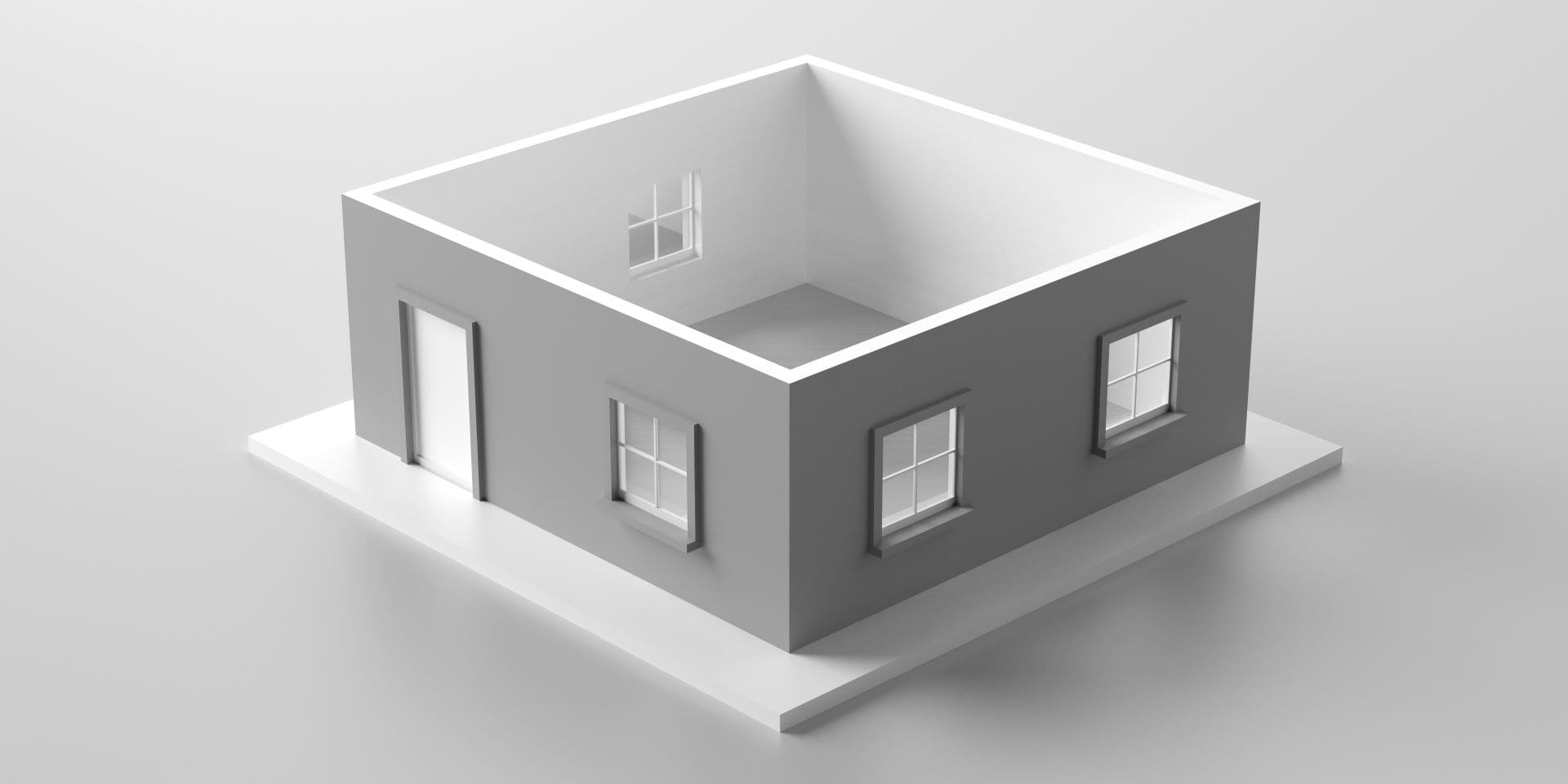A door is an important component of every house and lot. It is situated where you and your family enter, pass through, and leave your home the majority of the time.
But did you know that your doors’ placement might affect the entire style of the house you live in? Your interiors can look better and operate better with the proper placement of a door. This article will discuss a few innovative door placement ideas to assist you in enhancing the overall appearance of your house and lot.
How Important Is a Door in Your Home?
When a door is closed, its primary purpose is to retain the sense of privacy and safety inside the room. Doors serve as a dividing line between the house’s numerous interior spaces and add to the home’s aesthetic appeal.
Additionally, an open door permits light and air into different rooms of the house. It also permits entry into the home for people as well as pets. Doors affect the physical environment of an area by enclosing it and eliminating air drafts, allowing interiors to be heated or cooled more efficiently.
Furthermore, doors serve as a sound barrier when there is a possibility of excessive noise outside the house and lot. It is utilized to divide the formal and functional parts of a home into different screening areas for aesthetic reasons.
Likewise, it is crucial to restrain the spread of fire or smoke. The door serves the purpose of keeping others out by being fitted with locking mechanisms that only let certain individuals inside and prevent others from entering.

Where Are Doors Placed in a Floor Plan?
The house plan door placement can significantly affect how well the space flows when it comes to the design of your home.
The size of the room should be taken into account first. Make sure the door is positioned so that it doesn’t completely enclose a large room if you have one. For smaller rooms, you should avoid putting the door in a corner because it would make the space appear even smaller.
The positioning of the furnishings should also be taken into consideration. You need to make sure the door doesn’t block off any significant furnishings or turn the space into a maze.
Lastly, consider the room’s traffic flow as a last factor. If there is a lot of foot traffic, you should make sure the door is positioned in a spot where it won’t create a backup. Avoid putting the door in a more secluded location if the room is mostly used for relaxing.
What Is the Best Position for a Door?
The longest wall in the area makes for an ideal place for an interior door. Your space will feel more open and have an unhindered passage through it as a result.
The door can also be placed to the side of a wall-mounted window. If there is obstruction from furniture, the door can be placed so that it is slightly offset from the object.
What Is the Rule of Doors in Feng Shui?
The feng shui front door is one of the most significant components in making your living space feel good. This door has significance because it serves as the primary pathway for energy into your house. The type of energy that will enter the property, whether bad or good, depends on where the door to your home is located, what color and shape it is, the kind of material it is made of, and where it opens.
According to feng shui, the home’s exterior door should be substantial, durable, and sturdy. It must not be made of glass, shouldn’t have glass inserts, and shouldn’t have various types of windows on the sides. Otherwise, the house won’t retain its positive vibe. You may put potted flowers on the windows or hang drapes from such windows to prevent it.
Moreover, a nice front door opening into the home in a nicely illuminated hall or a large entrance is taken into account when determining feng shui. If this occurs and your door opens outward, try to change the arrangement of the hinges by trying to weigh them. Installing the door that opens toward the bathroom, stairs (especially if they are double stairs), a solid wall, or a small, dim corridor room is not advised.
The size of the exterior door shouldn’t be excessively enormous or small. The middle door is the best choice, but it is higher than the other doors in a home and is built such that even the tallest family member could comfortably walk through the entryway. Therefore, all demands for the unhindered entry of good energy into the space will be satisfied.

How Do I Feng Shui on My Front Door?
The effectiveness of a good feng shui doorway is more dependent on what has been done with the entryway than on what kind of entryway it is.
1. Keep personal items hidden.
The entryway’s poor, or insufficient, feng shui involves showcasing very private objects. This is due to the fact that our foyer is one of the most public areas of our house. For instance, it is advisable to place family photos in the home’s more private spaces. Keep your family pictures or other memories in your bedroom, where you can enjoy and appreciate them more on a daily basis.
2. Exhibit art.
Beautiful pieces of art can be hung in the feng shui foyer. Make sure that the artwork at the entrance has a relaxing, uplifting impact on visitors as it actually sets the tone for the entire house.
3. The entrance should contain each of the five feng shui elements.
The balance and positive energy of every area depend on the five feng shui elements, which include, water, fire, earth, metal, and wood. The room will exude equilibrium and well-being when all its elements appear at the entrance.
A tiny water feature can be used, but accents of blue paint or curved patterns would also work. The element you need to be most cautious with though, is fire since too much red in your foyer can be harmful to your home’s feng shui. Neutral hues like creams and browns can be employed to symbolize the earth. Last but not least, wood may make an appearance in your foyer with a stool or mini table, or you could decorate your house with actual plants.
4. Strategically place a mirror.
The placement of mirrors in the feng shui entryway is more important than whether or not they should be hung in the mirror itself.
Adjust the entryway mirror so that it is parallel to the front door. Try to attach a purpose to hanging a mirror so that it will attract positive energy to you and your house.
A mirror at the end of a corridor should not be installed as this can hinder the energy flow in your home. Your feng shui entryway will benefit if your mirror only reflects good things (i.e., no sharp edges).
5. Make the flow of the entrance instinctive.
Design the entrance such that visitors would understand what to expect and where to go just by observing how the area flows. Use physical clues like rugs or visual cues like artwork to let your visitor move about the room easily and pleasantly.
6. Ensure that the door can open and shut without interruptions.
Get rid of any blockages, like footwear, coats, umbrellas, pouches, etc. Install convenient hangers or hooks for other items and shoe storage by the front door as a long-term solution. A bench or chair is also an excellent addition because it offers a seat while the shoes are being taken off.
7. Utilize lighting wisely.
Compared to other rooms in a home, entryways might be exceptionally small areas. Naturally, this isn’t always the case, but when it is, illumination will be crucial. Small, dark areas are viewed as mood depressors in all feng shui designs. Lighter entry colors and overhead lighting are often preferred, according to good feng shui.
8. Make use of fresh flowers or plants.
Plant life is one of the simplest and best ways in feng shui to fill a space with vitality and good energy. On top of that, a sizable plant can act as a “wall” or buffer of sorts, producing a visual barrier exactly where you need it, for those entrances that need a little assistance in generating or sustaining their different footprint.
Read more: What are the Different Types of Doors


